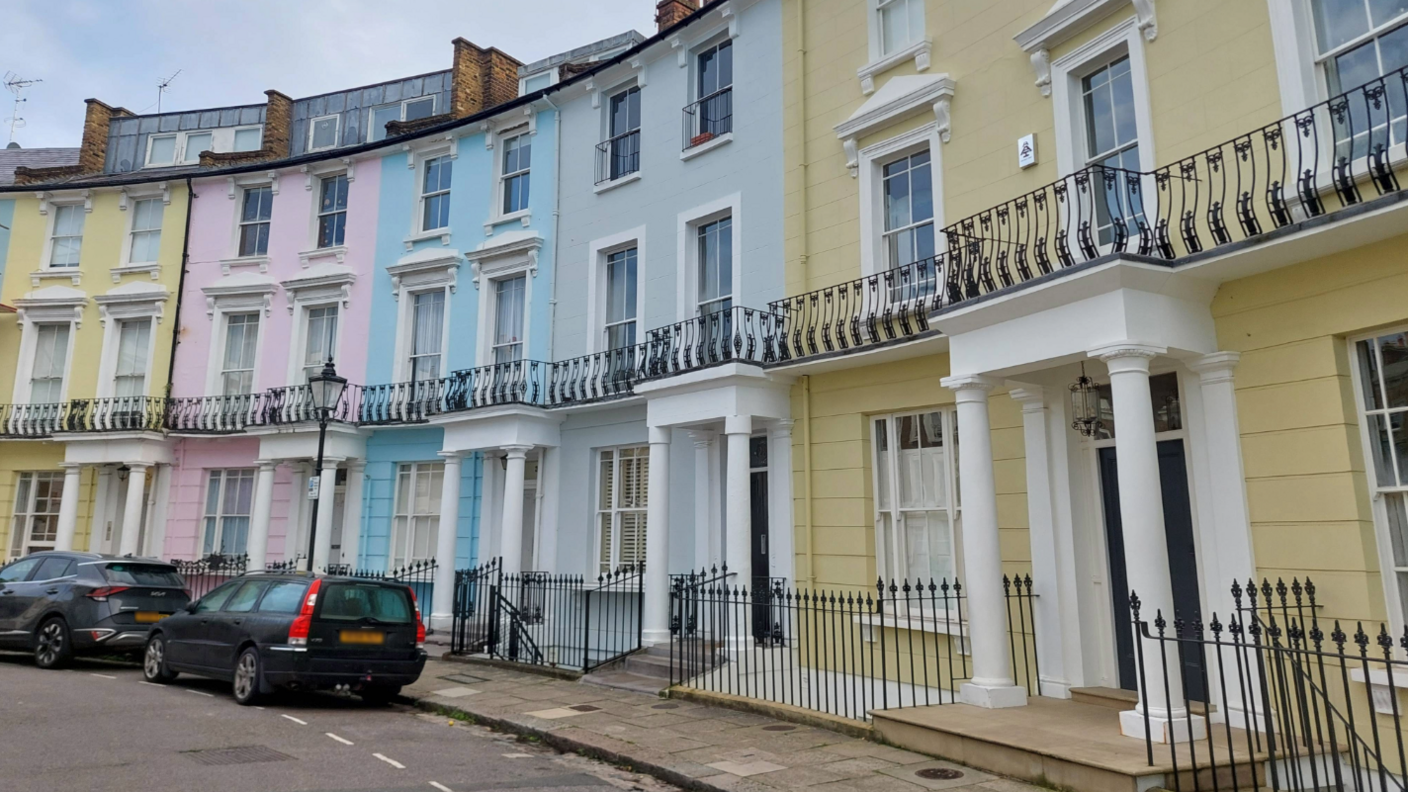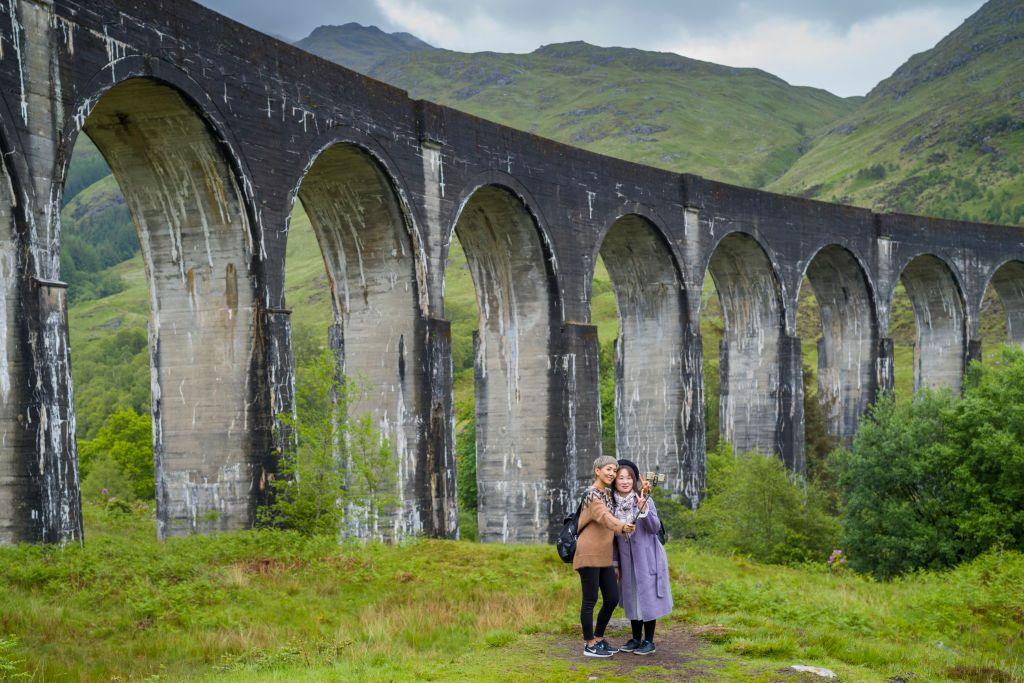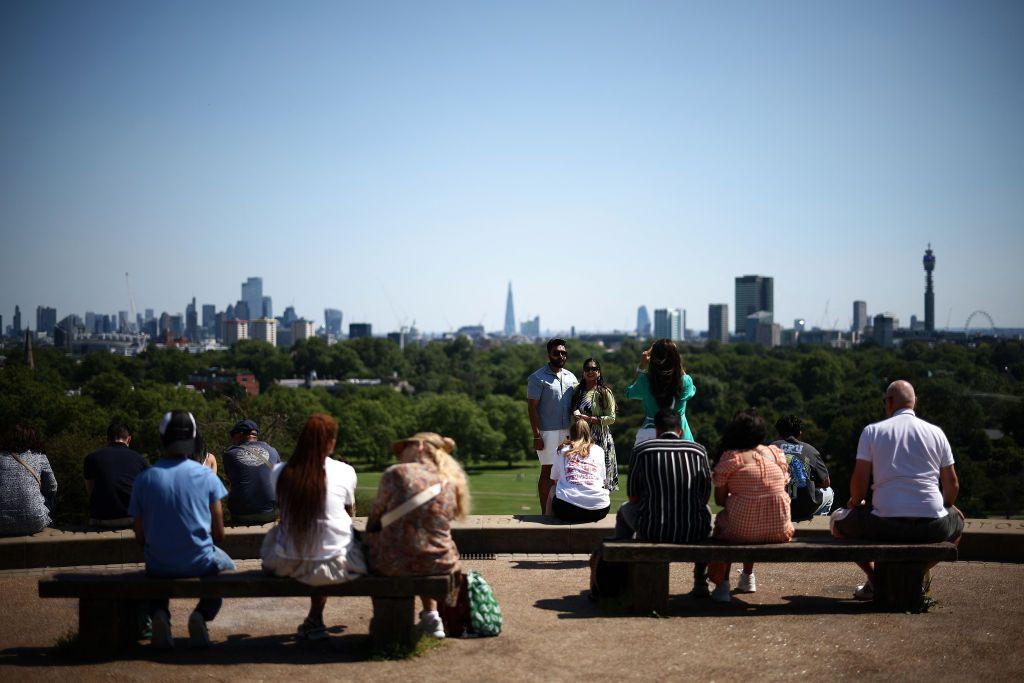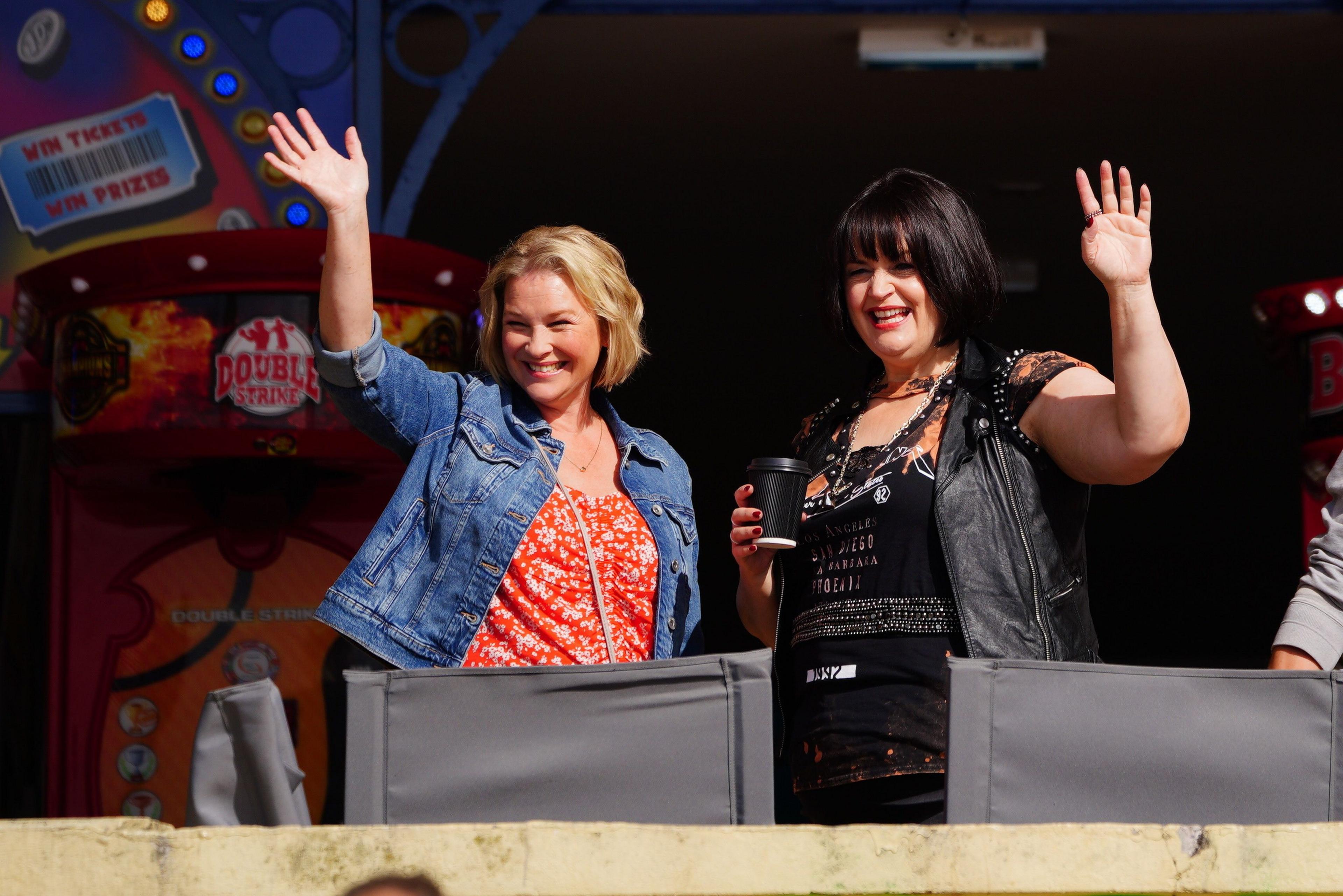Tourists flock to street used as a film set - and Airbnb row is 'final straw'

Chalcot Crescent is known for its pastel-coloured townhouses
- Published
With its idyllic Regency-style terrace houses, Chalcot Crescent has long caught the eye of the many visitors who descend on Primrose Hill.
But the north London street is now attracting another type of visitor: the film tourist.
It featured in Paddington - the film franchise used a house there as the home of the fictional Brown family.
”I've seen people taking selfies right in front of someone's living room window, and you're thinking, you know, if that was me, I'd be a bit annoyed to have my living room put straight on Instagram,” Matt Cooper, a Labour councillor for Primrose Hill, tells the BBC of the many tourists who visit the area.
A spat has now flared between local residents and Airbnb, which is running a competition for three families to stay in a house on Chalcot Crescent to mark the release of Paddington in Peru in November.
The holiday booking site has told them it's spending two weeks renovating the property to resemble the film set for three days of stays - painting the facade blue, blocking five parking spaces and also bringing noise disruption during the week.
Some residents have protested in a letter to Airbnb, claiming that the competition will feed into issues the street already faces with over-tourism.
The row appears to be "the straw breaking the camel’s back," says Mr Cooper.
In response, Airbnb tells the BBC it has not disclosed the location of the house and is making a “sizeable donation” to the Primrose Hill Community Association.
It's not the only film set tourism row of recent years - and the others might tell us a thing or two about how to resolve them.
Harry Potter and Downton Abbey
Scotland's Glenfinnan Viaduct is best known for appearing in Harry Potter.
Its dramatic arches, cutting through the striking West Scottish Highlands, were used as part of the Hogwarts Express’ route.
But an influx of Harry Potter fans to Glenfinnan itself - a tiny village with just 150 residents - has caused some complaints. Nearly half a million tourists visited the viaduct in the first 10 months of 2023, according to National Trust Scotland.

Glenfinnan Viaduct is a popular destination for film fans
One local resident told the Mirror in July that traffic reaches “complete gridlock” while others told the National last year that a lack of sufficient public toilets had led to some visitors urinating in public.
It's been a similar story in the village of Bampton, Oxfordshire - better known as the backdrop for Downton Abbey.
Some residents said in 2019 that coach-loads of tourists were arriving to take snaps of locations used in the hit ITV period drama - before leaving and spending little money in the local economy.
An agreement was reportedly later struck with coach companies to resolve issues with parking in the area.
And in Hebden Bridge, Yorkshire, some locals last month complained of an uptick in stag and hen parties after the town was popularised by BBC crime series Happy Valley.
As well as broad issues associated with tourism - like overcrowding, litter and parking troubles - film tourism brings its own specific problems, says Dr James Cateridge, senior lecturer in film at Oxford Brookes University.
“There may be a huge boost to tourists when the film is released or immediately after its release, and then that can tail off quite quickly,” he explains. “So that's quite difficult to plan for and mitigate for.”
That does not appear to have been the case for Primrose Hill, which is already used to people visiting local Bridget Jones film backdrops and Primrose Hill Park with its sweeping views of London's skyline.

Primrose Hill Park has long attracted visitors
Finding a happy balance
It's not all doom and gloom - sometimes films being shot on real streets, as opposed to behind closed doors in studios, can fuel a boom in local trade.
According to a 2021 report by the British Film Institute (BFI), film-related screen tourism from other countries to the UK was estimated at nearly £900m in 2019, including increased spend at attractions, hotels and restaurants.
High-end TV-related tourism brought almost £500m to the economy that year too.
No wonder then that residents of Barry Island in south Wales appeared to welcome the recent filming of Gavin & Stacey's Christmas special, due to air on Christmas Day.
Crowds of onlookers were pictured on the street watching stars like James Corden, Ruth Jones and Rob Brydon arrive for filming.
“Every time they come down here, there’s always a boom," local resident Marco Zeraschi told Barry & District News.

Gavin and Stacey's cast returned to Barry Island this year to film the upcoming Christmas special
And in Tobermory on the Isle of Mull, the news of a new series of CBeebies show Balamory is expected to bring a rise in tourism. VisitScotland said it was looking forward to seeing what the effect might be.
The key to achieving a happy balance between locals and film tourists is for councils and tourism groups to be proactive, Dr Cateridge says, such as planning ways to spread the visitors beyond just a small area.
Dr Peter Robinson, of Leeds Beckett University, points out that smaller filming locations, with fewer ways for visitors to spend money, tend to fare worse.
He compares Glenfinnan with Highclere Castle where parts of Downton Abbey were shot - the latter has far more spending opportunities to help boost local income.
Back in Primrose Hill, Airbnb insists the temporary renovation of the house for competition winners will be returned to normal "in a matter of weeks".
"We respect the community and the homes within it," a spokesman says, adding that the company has met with locals and stayed in contact with them.
While that row might pass when the Airbnb project is over, the street is less likely to shake off its Paddington link - and the selfie seekers who come with it.
Get in touch
Is there a place near where you live which is used for filming? Has there been an influx of tourists? Please share your experiences.